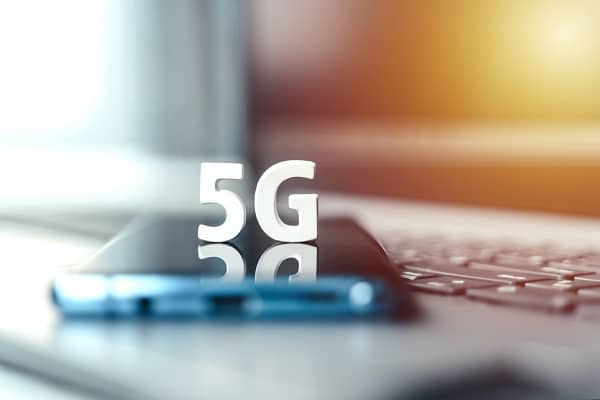Contents
All That You Need To Know About 5g
Now we have all heard 1G, 2G, 3G, 4G. But what are these and what do they represent? Networks like, 1G, 2G etc., are tools to achieve wireless communication.
Wireless technology is used to transmit data and information, from one place to another without any use of connectors, such as wires, cables or any such physical medium. This transfer of data is achieved through transmitters placed over a distance. The idea behind this technology is to provide high quality and reliable communication, and with each new generation, we come closer and closer to this idea.
In this article we will talk about what precisely 5G is and everything you should know about 5G.
Every person who has a cell phone knows what 1G, 2G, 3G, 4G is. It is a technology for cellular networks. The G stands for ‘generation’, and the numbers represent the generation number.
Each generation can be defined as a set of cellular network standards. With every next generation, we get better connectivity, internet access and mobile services. The speed along with the technology used to achieve this speed changes. At this very moment, most people are using fourth-generation technology.
What Is 5G?

It is the next generation of cellular network technology; it brings faster data upload and download speeds, low latency and faster data rates.
Ian Fogg from OpenSignal, a mobile data analytics company, says “Whatever we do now with our smartphones we’ll be able to do faster and better”.
5G will be considerably faster than 4G as it can deliver up to 20 GBPS peak data rates. 5G also has a lower latency rate than 4G. 5G offers a shorter wavelength, which means it can carry more data in less time as compared to 4G. The only downside to this is that with shorter wavelength comes shorter range.
5G is already here. Global operators already began launching new 5G networks in early 2019. Many android phone companies have also started manufacturing and commercializing 5G network phones. 5G has already been deployed in 39+ companies and still counting. One can see much faster adoption and rollout than 4G. Users are thrilled with faster speed and low latency.
Countries That Use 5G

The first country to adopt the 5G network on a large scale was South Korea in 2019. South Korea, China and The USA are the leaders in building and deploying 5G networks across the globe. However, 5G network is not expected to spread worldwide till 2025, which means that demand for 4G will still be high.
Many cities have also banned the use of 5G networks, reporting it to cause significant health effects. Brussels was the first city to ban the use of 5G networks. Cities, towns and councils in Ireland, England, Italy, USA, Germany, Australia, Russia, Netherlands, Switzerland and Bangladesh have banned the deployment of 5G towers, antennas and other such carriers.
Who Owns 5G?

The answer to this question is NO ONE. 5G belongs to no one. Researchers and companies in the mobile ecosystem, from all over the world have helped to bring it to life. However, it can be said that Qualcomm, a multinational company known for manufacturing and designing wireless communication products and semiconductors, has played a massive role in the advancement of 5G technology.
Would You Need To Buy A New Phone?

Yes, with the arrival of 5G technology, you will need to buy a phone that can support 5G network. There are a number of cellular phone companies that have already launched a 5G supporting phone. OnePlus 8T 5G, Samsung Galaxy Note20, XiaomiMI 10, OnePlus 8 etc.
Pros And Cons Of 5G

Pros-
- Crazy speed – Downloading and uploading massive data files will be done in seconds. For instance, if you were to stand near a 5G tower with your 5G phone, you could easily download an entire HD series in a matter of seconds. Also, you will be able to say goodbye to buffering.
- No more tower congestion – Tower congestion basically means network traffic. When too many use a shared network source, it crowds the transmission capacity. With the previous LTE technology, when many people descend in a small area, the towers in that area could easily get congested as they reach their capacity. 5G offers greater bandwidth than its predecessors, which means that people won’t have to compete with each other for the tower and its services. With greater bandwidth, users will be able to use this bandwidth to make their devices more versatile.
- Greater technology – In this very moment with 4G network we can get an assignment table quickly to our smart services, it is easy and crazy fast. Now imagine the many possibilities that 5G will bring. With increasing network speed, we will be able to access devices such as AI and VR. With this technology, we will be able to control swarms of drones, operating them to conduct rescue and search missions, traffic monitoring and fire assessments. Less latency for gamers, vehicles being able to read and assess live maps and traffic data. Glitch free and buffering free videos.
Cons –
- Distance – Data is travelled through frequency waves, but these can only travel to a certain distance. With 5G this distance travelled will increase but not significantly. It will be more than 4G but not enough to make a difference. Also, mm 5G frequency waves can only travel well in the line of sight. It means in a straight line with the tower in its path. Which means that towers, trees, buildings etc. can disrupt, block and even absorb the high-frequency wave if they fall in the way. Rain can too, be a possible problem for the 5G network.
- Battery Drainage – 5G network may seem a gift, but it also means massive battery drain. The phones used at present will not be compatible with 5G network, which means that better battery technology will be required if users want to run their phone for a full day on a single charge. It was also noted that devices running a 5G network tend to get really heated faster.
- Speed – At the present, the download speeds are as high as 1.9 Gbps; the issue lies with the upload speed. In rare cases, the upload speed can be seen over 100 Mbps. With 5G network download speeds are very, very fast but the change in upload speed is marginal and not as good as the changes in download speed. Ping speeds in 5G network are also high as it is not in the low latency of 1 ms or less.
- Lack of coverage – As of this moment, 5G network is not available worldwide and is limited to small areas in specific cities. Observations and research are still being conducted, but soon 5G carriers will be available in major cities. So if you are someone who resides in any significant cities chances are you will be the first to avail this technology. Rural areas will still have to wait for a considerable amount of time before they can use this technology. As a rule carrier companies tend to spend their network upgrade dollar on areas with a high number of users.
Amongst these uncertainties, one thing is precise that 5G will bring a transformative change in the whole wide world. It will revolutionize the world economy. The only question is to what extent. Despite the cons of 5G, it will be here before you know it.


